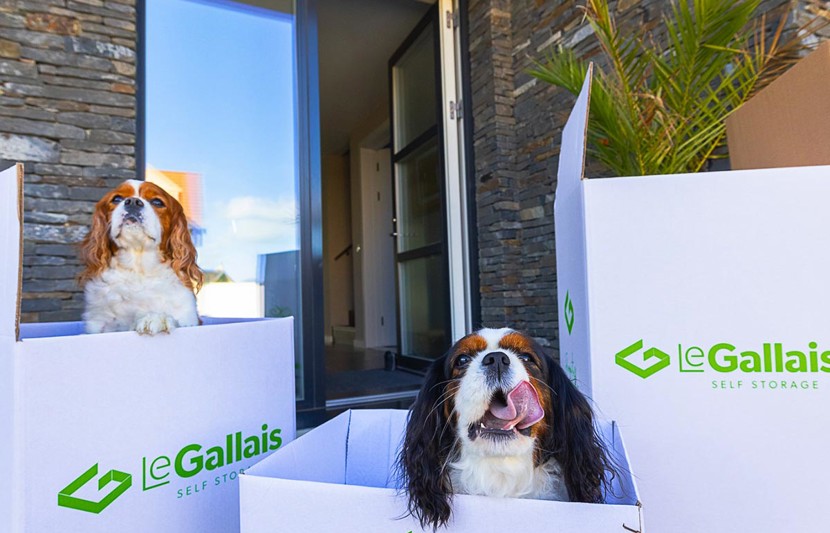All landlords in Jersey have a legal responsibility to ensure their property is safe for their tenants. But there’s more to being a good landlord than simply keeping it legal.
It makes good commercial sense to make your property a welcoming place where your tenants enjoy living. Unhappy tenants are more likely to leave; every day your property remains empty costs you money, and finding new tenants can be an expensive process.
So spending time and money to ensure your property is well maintained and somewhere your tenants want to stay in will likely pay you back in the long run and increase the capital value of your asset .
Preparing the property for rent
Before finalising a tenancy agreement, all prospective landlords must:
- Treat any damp or mould
- Ensure the property is clean and dry
- Check each storey has a working fire alarm
- Check any habitable room with an oil, gas, wood or coal burner/heater is fitted with a carbon monoxide alarm
- Check an Electrical Installation Condition Report (EICR) has been carried out within the last 5 years
- If the property uses gas, check a Gas Safe inspection has been carried out within the last 12 months
- Write a condition report
Writing your condition report
Since October 2014, landlords are required to issue a condition report for every new tenancy agreement. The landlord must complete a condition report at or before the commencement of the residential tenancy.
Within 7 days of receiving a condition report the tenant must mark any modifications that the tenant thinks appropriate on the report, initial the modifications, and return one copy to the landlord.
A condition report records the physical condition of a property at the time a tenant moves into the property and when they move out. The report should record the condition of the following features in each room:
- Walls
- Ceiling
- Floors
- Windows
- Fixtures & fittings (that belong to the landlord)
- Kitchen units
- Vanity units
- Toilets, baths, sinks & showers
Any known defects should be highlighted to the tenant and included in the schedule of condition. It’s good practice for the tenant to write their initial next to the defect as acknowledgement.
Failure to complete a condition report can result in a fine of up to £10,000 for the landlord/agent or the person with control over the dwelling. To make it easy, gov.je provides a good starting template here.
Note: the maximum fine for any offence committed under the Residential Tenancy (Jersey) Law 2011 - including the 2014 Condition Reports Order and the 2014 Tenancy Deposit Scheme Regulations - is level 3 on the standard scale. A level 3 fine is currently set at £10,000 - source gov.je
Writing a tenancy agreement
A good tenancy agreement or lease protects the landlord and the tenant by clearly setting out the obligations of the agreement for both parties. Should any dispute arise, both parties can refer to the document and see what was actually agreed.
Be sure to include the following essential information in your tenancy agreement:
- A description of the property and a full inventory
- Start date of the agreement
- End date of the agreement (if applicable)
- Landlord contact details
- Rental amount
- Frequency of payment
- Deposit amount
- Rent review details
Both parties should sign and date the agreement, with each retaining a copy for the duration of the tenancy.
Collecting and protecting the deposit
It is highly recommended that all landlords collect a deposit from the tenant. The deposit will protect the landlord if the property is damaged by the tenant or terms of the tenancy agreement are broken.
Once the deposit has been collected, the landlord must submit it to mydeposits within 30 days. New landlords will need to create an account and pay a small admin fee.
Landlords who do not protect their tenant’s deposits through mydeposits can be fined up to £10,000.
Make friends with maintenance
During the course of any tenancy, there’s likely to be maintenance that needs to be carried out. It’s in both the landlord’s and tenant’s interest to get any issues sorted quickly and efficiently. Check out our top tips below.
Make a clear escalation plan for tenants. This should include:
- Your preferred contact method for reporting issues
- Contact hours for non-critical issues
- Expected timeframes for addressing problems
- Preferred contractors for each trade
Find a reliable plumber, electrician and heating engineer. If they’ve never visited the property before, arrange a visit to allow them to familiarise themselves with it.
A small fee may be charged for the inspection, but it often allows future problems to be triaged over the phone. This is a far more effective approach than cold-calling an unfamiliar tradesperson when something goes wrong.
Can we lend a hand?
We know renting out your first property can be time consuming and often daunting. If this guide hasn’t given you enough confidence to take the plunge yourself, pick up the phone and give our experienced lettings team a call to talk things through.
Le Gallais has been guiding landlords through the process for well over a century. There aren’t many issues we haven’t tackled before.
Call 01534 76 66 89 to speak to one of our letting experts or send us an email at estates@legallais.co.uk



